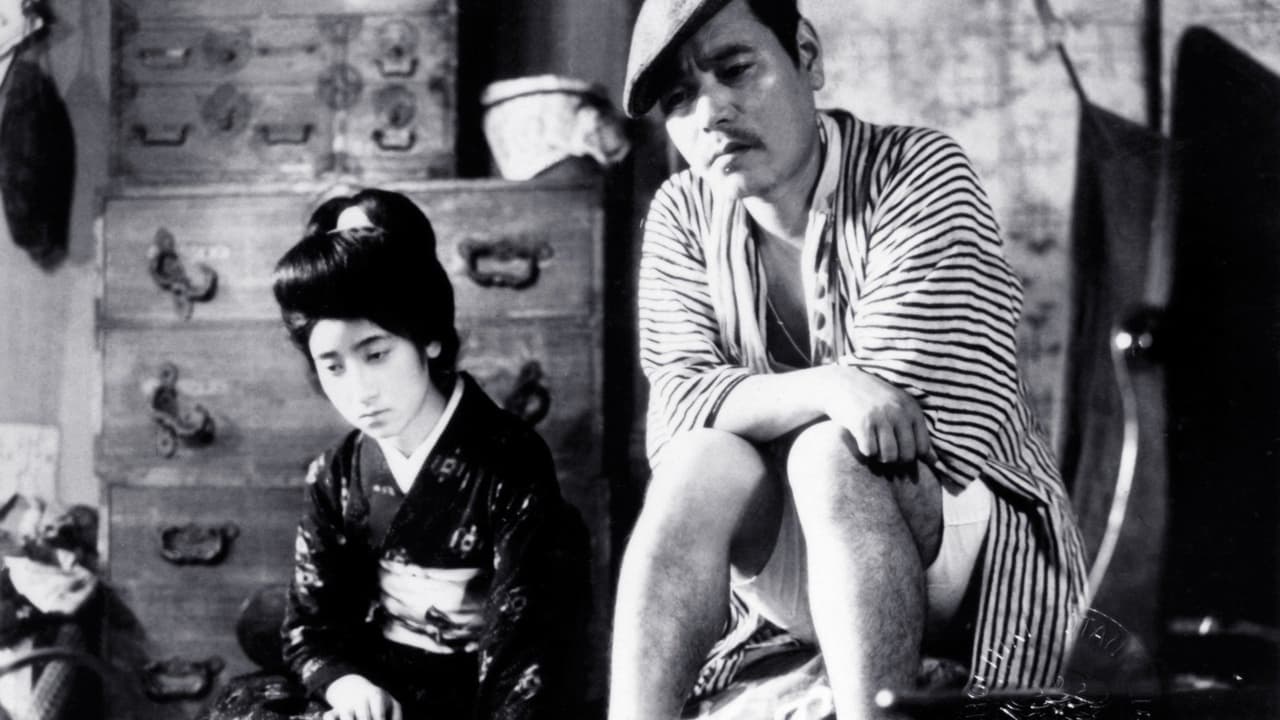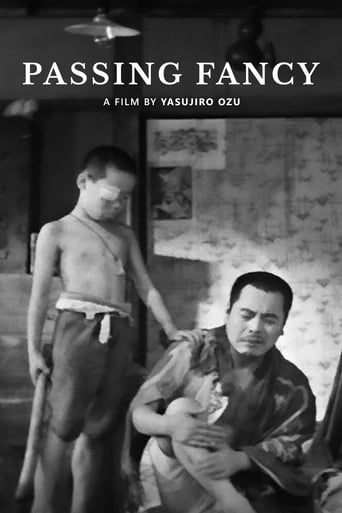

Viewed on DVD. Restoration = four (4) stars. We've all been there: struggling to find the pause button in the dark on your player's remote so you will not miss anything when you are momentarily away from your viewing area. Well folks, it's not a problem with this movie. Just keep it running; when you return you will find you have missed nothing of significance! This is because nothing of significance appears to occur in this film which seems fixated on trivia, fleas (or lice), and fans. Although the actors sure try to build re pore and empathy with viewers, the director seems satisfied with the notion that trivia, fleas, and fans will carry the day. Not really! Staying with acting for the moment, it is (for the most part) first rate and you have likely seen (or will see) many of these actors before (or again)--as members of the director's acting company or, more likely, from the ranks of the studio's contract players). But the actors face a losing battle struggling with a dull script, having to scratch and fan themselves with numbing (pun intended) regularity, and less-than-inspired direction. (The plot is among the missing and the ending is flat out ridiculous!) The artificiality of a studio bound production (except for one outdoor scene) is embarrassingly obvious with small sets for both interiors and "exteriors." Cinematography suffers from the absence of deep focus. Costumes rarely change; some characters wear the same costume; it looks like the actors may have had to provide their own wardrobe. Intertitles and subtitles often occur faster than the speed of speed reading. The piano score is fine, but it's lively nature can not reanimate dead trivia. Restoration is not there yet: distracting deterioration artifacts often occur at what seems to be where reel changes took place. Criterion graphic artists are still having fun frustrating the viewer by making a game of how to turn subtitles (and the piano score) on/off. Bottom line: A padded-out featurette that goes nowhere--very slowly. WILLIAM FLANIGAN, PhD.
... View MoreLike many Ozu films, 'Passing Fancy' is about the difficulties of father-son relationships, set in a small Japanese town, mostly passing with the intimate indoor conversations of characters, which framed in a certain way manages to reveal great depth. In this particular instance, in a one room house with few furnishings and damaged walls, the father and son are very poor, but the arrival of an unknown young female to the town sparks a love interest. It's a pity a film with so much great dialogue is silent, but the technology may not have been available to them at the time in Japan, and once you get used to the rhythm (which only takes a scene or two) it is not something that bothers you. Kihachi is a loveable fool, who smiles and charms easily, but drinks excessively, skips work often, and slowly reveals a raw unattractive side with insensitivity towards his son. You will cheer him on one minute, and despise him the next. It's a film about the difficulties of money, but even more so about responsibility - of being a father, educating our children well, and in the way we conduct relationships.Ozu films are always associated with home and family and friends but the strong feelings he generates seem rarely to dip into sentimentality. Often it is the small details that stand out - holding that frame of the suburban background just an extra second or two after after the character exits - a small touch, but one that allows time for reflection. Or in the scene where the child slaps the father, how he scrunches up his pants before doing so, the tiniest gesture to reveal he has doubts or concerns about doing it. Ozu trusts the tiny details - blink and you'll miss them - to reveal the big, which makes his films feel both humble and meaningful at the same time. They are wise, not showy.The third act and particularly the very end is the only part of this film melodramatic enough to feel written for a movie, but it redeems itself by rounding off a great joke and finishing as it began - with a dose of humour amid an otherwise dramatic tale.
... View MoreThis rarely screened silent gem shows Ozu rather early in his career. It presents the story of a poor factory worker trying to raise his son despite many obstacles and hardships. The biggest obstacle of all is the father himself who, though well intentioned and charismatic, makes one mistake in judgment after another. The father manages to get through all his many trials and tribulations thanks to the support (not always warmly) given by his friends and neighbors.The most interesting thing for me about Passing Fancy is the way it uses a quite hard boiled, gritty realism and coarsely drawn, boorish characters to elicit very tender feelings in the viewer. The mixture of humor and pathos that advances the plot would be impossible for lesser directors or a weak cast to pull off, but in the hands of this troupe the whole enterprise succeeds wonderfully. Somehow, you may find yourself tempted to cry despite the near-total absence of sentimentality.The acting is excellent all around, but the young boy deserves special mention. To Japanese, particularly at the time, the boy's behavior must have seemed shockingly inappropriate and unfilial, but his antics and facial expressions are very funny.It is hard to believe that this is one of three movies that Ozu directed in 1933 alone. If the opportunity arises to see this movie, make every effort to see it.
... View MoreYasujiro Ozu is an extremely well respected film director. While not as famous today as his countryman, Kurosawa, among those who are fans of Japanese cinema, he is practically a god. While I have loved many of his films due to their amazing artistry and great direction, I also think that overall, many of his films are a tad overrated. In other words, because SOME films are near-perfect classics (such as both versions of FLOATING WEEDS or my favorite, LATE SPRING), people often tend to see ALL of his films as having the same quality. This is true of all the great directors, as there are a devoted group of followers that see every film as great--even if the films have obvious flaws or were made before the directors learned and perfected their craft.I mention all this because although PASSING FANCY is a very good film, it's far from great--despite some amazingly positive reviews. While it's true that the Japanese film industry didn't switch to sound until very, very late compared to Western countries, shouldn't this be considered when giving out 10s to these silents? In other words, shouldn't technical merit be considered when reviewing a film? As such, I'd have to knock a point off the film. In addition, the film's plot is amazingly scant and a bit too ordinary.Now in Ozu's defense, I must say that when it comes to the ordinary, nobody does it better. Here we have the story of a hard-drinking blue collar man and his young son and there's not a lot of excitement or action...but it STILL engages the audience due to his nice touch and excellent acting. In addition, the ending is very sweet and well done--even if nothing is exactly resolved in this story of very mundane individuals.Well done and worth seeing but not exactly magical.
... View More